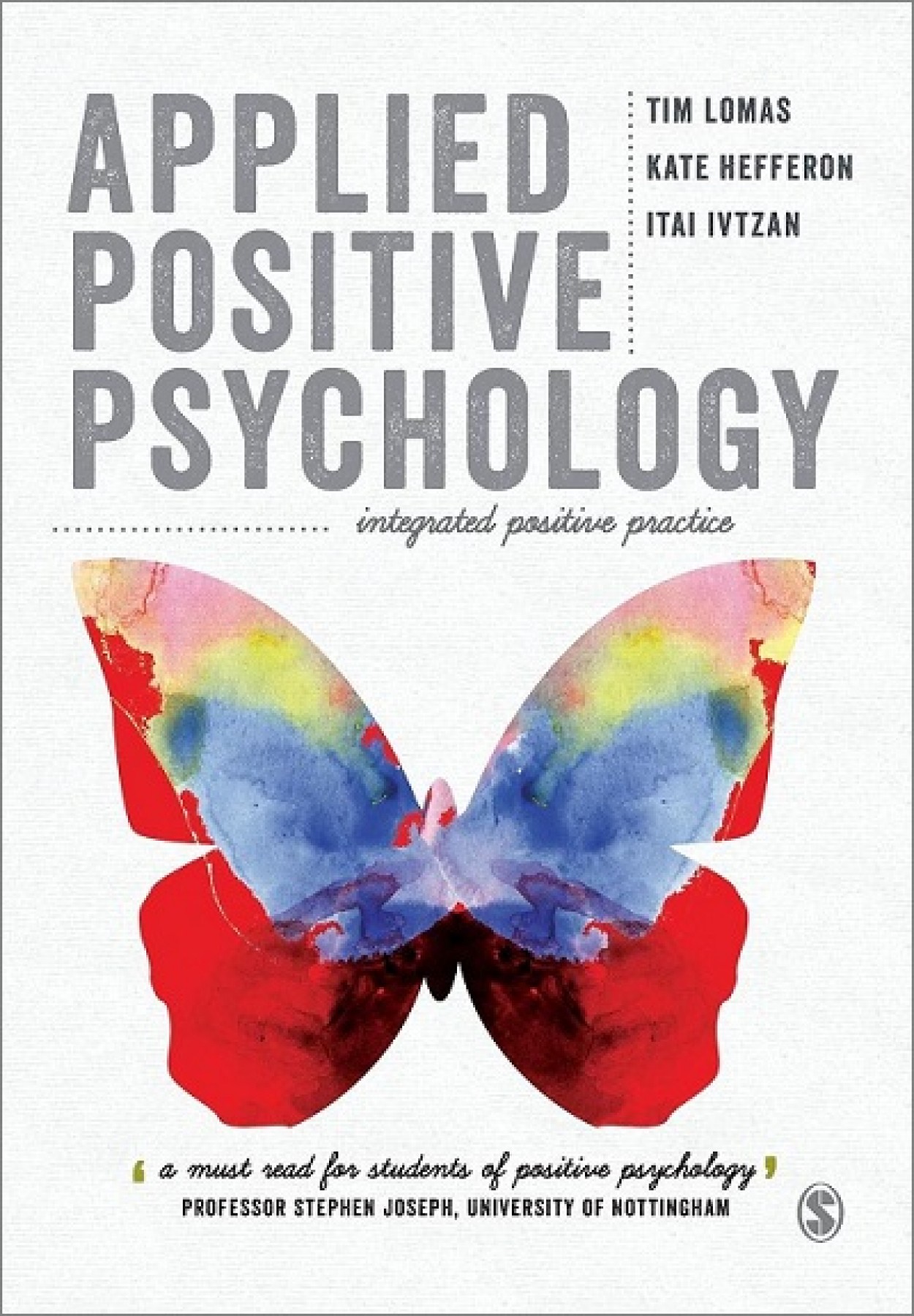The authors define positive psychology as “the science and practice of improving wellbeing” to change people’s lives for the better. I love the practical aspect of the discipline, whereby the knowledge isn’t restricted to a theoretical debate in a book but has practical or applied application.
The authors of the book are lecturers at the University of East London on the MSc course in Applied Positive Psychology. The book reflects the content of their eight-week course. They are active researchers who have published numerous papers, books and book chapters on various aspects of the emerging area of positive psychology.
They start off reflecting upon Martin Seligman, who used his 1998 American Psychology Association presidential address to usher in the new innovative field of positive psychology, which has since flourished. Noting it is not a new specialty within psychology but is rather seen as a “collective identity” unifying researchers interested in the “brighter sides of human nature”.
Five ways to wellbeing
They note that “positive psychology interventions can be used by the public generally as a form of scientifically-based self-help”. This brings to mind the most prominent example of a positive psychology initiative being the Five Ways to Wellbeing developed in the UK which the Mental Health Foundation has adapted with great success in New Zealand.
This book is most definitely a textbook, aimed at students of positive psychology, though personally even though the content is at times dense and takes a few reads, I think it would suit anyone curious about learning more about wellbeing.
In a few hours the reader gains a comprehensive overview of the key concepts, influential researchers and the supporting evidence base. As far as text books go it is a very user-friendly one, it is comparatively brief, and full of interactive learning tools, such as learning objectives, case studies and quizzes that structure each chapter.
My favourite learning tool, as a break from the more academic sections, is the “Try Me” boxes where you are encouraged to pause and reflect to gain direct experience or insight into the concepts discussed.
The book gives you a really good stocktake of the proven benefits of positive psychology across multiple settings, for individuals and communities, as well as robust debate about what exactly wellbeing is.
They take into account societal, cultural and individual influences, they use a multidimensional model of wellbeing known as the Integrated Framework Example (LIFE) which is weaved into all the successive chapters as a map to guide you and to layer your learning upon.
You get a real sense that difference is respected and regular acknowledgement of the multiple influences that shape us as individuals – this isn't a one answer suits all approach thankfully.
Encouraging read
With regards to best practice, as well as presenting a solid event base for initiatives, the authors’ final chapter focuses on reflective and ethical practice.
To end I will quote a fact the authors remind us of – that our wellbeing is shaped 10 per cent by our circumstances, 50 per cent is determined by genetics and 40 per cent by our activities.
I think the authors have successfully managed to produce a resource that is encouraging and they definitely provide tools and understanding to help readers make their lives better, which was the authors’ identified motto.
I feel more empowered and convinced that perhaps little changes in my daily activities can make the world of difference to my wellbeing in the long run.
Reviewed by Kim Higginson, Information Resources Specialist at the Mental Health Foundation

